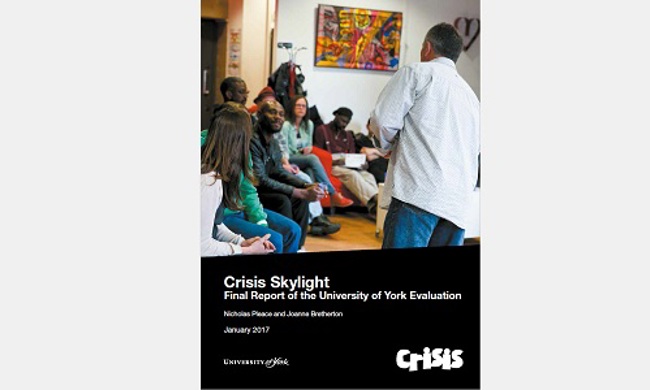Crisis Skylight Final Report of the University of York Evaluation
05.03.2017
It presents the outcomes for six Skylight services, in Birmingham, Edinburgh, London, Merseyside, Newcastle and Oxford over the period 2013-15 and assesses the capacity of Crisis Skylight to deliver the goals of the Crisis Model of Change.
Key findings
- Crisis Skylight is an innovative service that mixed-methods research has shown can deliver economic and social integration, particularly in relation to progression towards paid work. Crisis Skylight often made a real, positive difference to the lives of many single homeless people, those at risk of homelessness and people with histories of homelessness. The Crisis Skylight programme can end and prevents homelessness through progressing single homeless people towards social integration.
- Crisis Skylight challenges some popular assumptions about single homeless people, who can be stereotyped as unwilling, or unable, to work. The willingness of large numbers of single homeless people to engage with Crisis Skylight, actively and voluntarily seeking progress towards paid work, shows the dangers of making assumptions about who single homeless people are or what they want from life.
- Crisis Skylight uses a model of change that emphasises good health and wellbeing, employment and financial stability, housing stability and the building of good relationships and social networks. The effectiveness of Crisis Skylight varied across different aspects of the Crisis Model of Change during the period 2013-2015. Crisis Skylight was most successful in respect of education, training and employment, with positive engagement in arts-based activity, which facilitated and supported these activities, also being evident.
Reference
Pleace, N. & Bretherton, J. (2017) Crisis Skylight: Final Report of the University of York Evaluation. London: Crisis.

